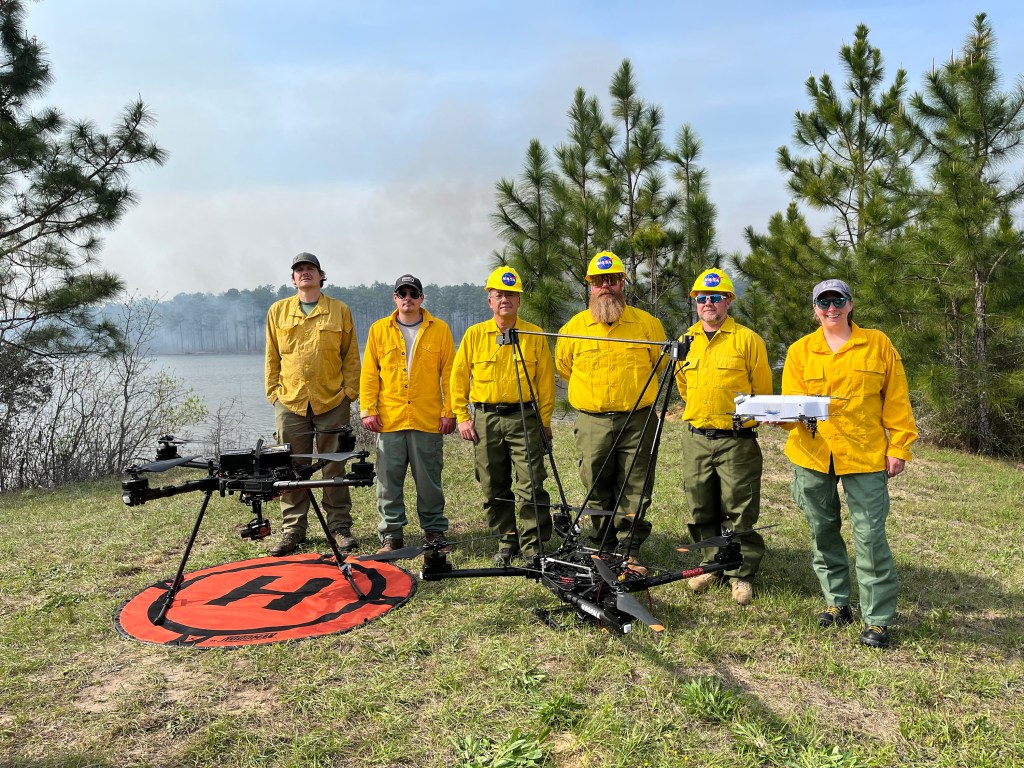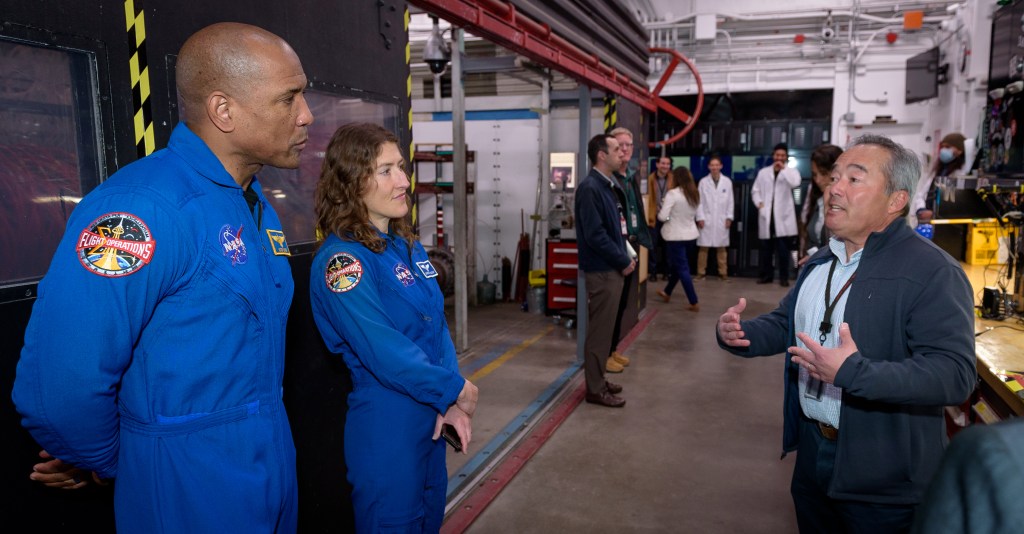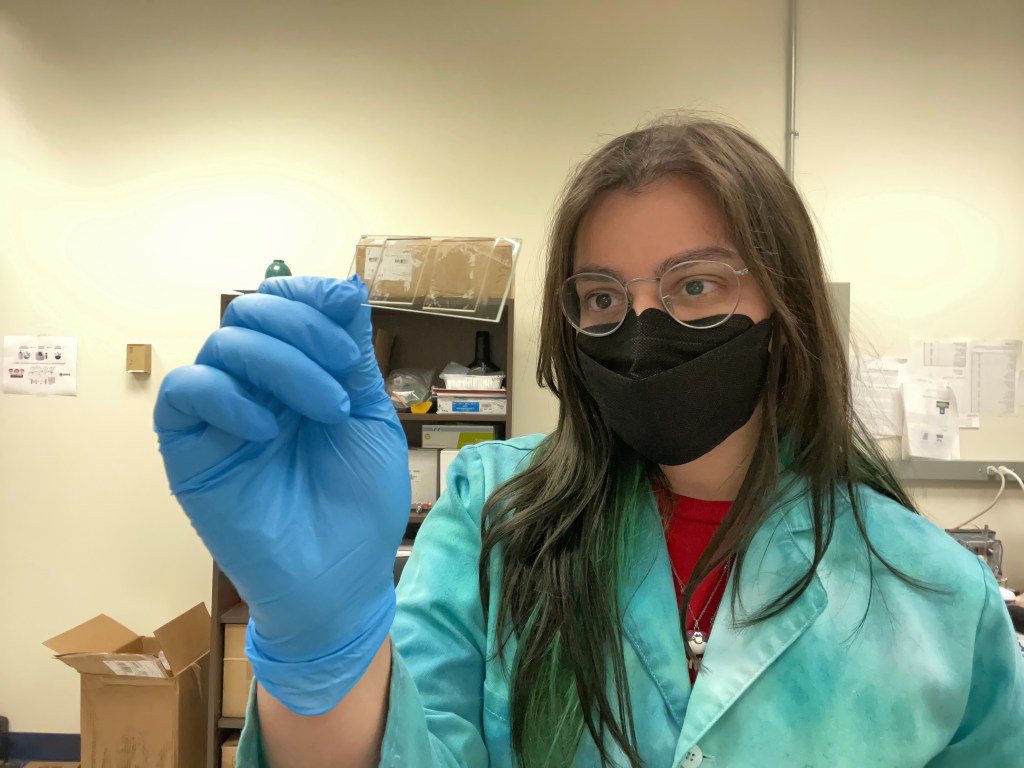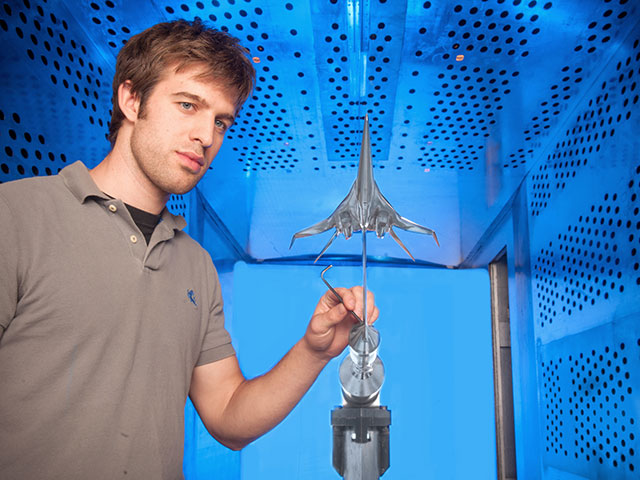The NASA IRB was established in the 1970s to conduct and support human subjects research (HSR) at NASA. The HSR that is conducted at NASA is designed to understand and improve the safety, well-being, and performance of flight and ground crews and others. The goal remains the same but now includes reviewing HSR that occurs on the International Space Station and with the Commercial Crew Program. Studies are being conducted to understand and predict the ability and success of human performance in simulated or actual ground and flight tasks. This also involves studies that help assess the efficacy of interventions that mitigate adverse health effects of simulated or real environments. The HSR study portfolio includes, but is not limited to:
- Human-computer interactions
- Aeronautical research
- Cardiovascular, neuroscience, musculoskeletal
- Exercise, nutrition, and immunology
- Work environments such as air traffic and mission control centers
- Simulated environments such as the Human Exploration Research Analog (HERA)
In order to ensure the ethical, safe, and equitable treatment of subjects, along with complying with applicable federal regulations, the IRB applies its own Code of Federal Regulations (14CFR1230) and follows NASA policies and guidelines (NPD 7100.8, NPR 7100.1). Other regulatory guidance that is followed comes from the Office for Human Research Protections and the U.S. Food and Drug Administration. The IRB holds a Federal-wide Assurance (FWA), FWA00019876, which assures compliance with the U.S. Federal regulations for the protection of human subjects in research. For additional regulatory guidance, click here to read more about it on the NASA eIRB.
The NASA IRB Office is comprised of IRB Coordinators, an IRB Chair, an IRB Lead, and the Institutional Official (IO). Additionally, the IRB Office often consults with a Protocol Compliance Officer, Safety Officer, Crew Representative, Crew Physician, Legal Representative, and members from Ames, Johnson, Kennedy, and Langley Space Centers. Once a month, the IRB Office will meet with those members, as well as select members of the community, to discuss HSR studies that are being reviewed at NASA. For information about IRB meeting dates and submission deadlines, click here to be taken to the NASA eIRB.
The NASA IRB is guided by three ethical principles found in the Belmont Report, which are displayed on the ring of both logos it uses: Respect for Persons, Beneficence, and Justice. Click on the sections below to learn more about each principle.
Respect for Persons
Anyone who is to be a subject of research must understand what is going to happen and what the potential risks and benefits are. They must give their consent freely, without pressure or inappropriate persuasion. Individuals should be treated as independent agents and those with diminished autonomy are entitled to protection.
Read More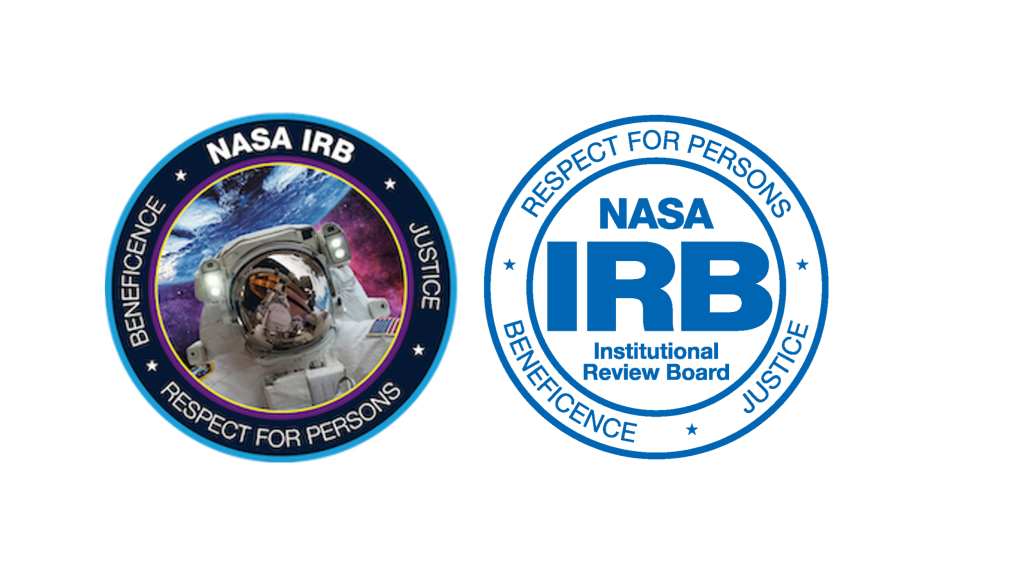
Beneficence
Before anyone participates in a research study, one must consider whether the risks to the subject is outweighed by the benefit, or risk-to-benefit ratio. It is also important to assess the scientific design and merit in order to assess this ratio. If the study design is not adequate to achieve the aim of the study, then no benefit can be anticipated, and there is no justification for placing the subject at risk.
Read More
Justice
Both the risks and potential benefits of research should be spread fairly among potential individual subjects and subject groups. Simply put, who should receive the benefits of research and who should bear its burdens? Burdens and benefits should be distributed to each person on an equal share and according to individual need, effort, societial contribution and merit.
Read More


